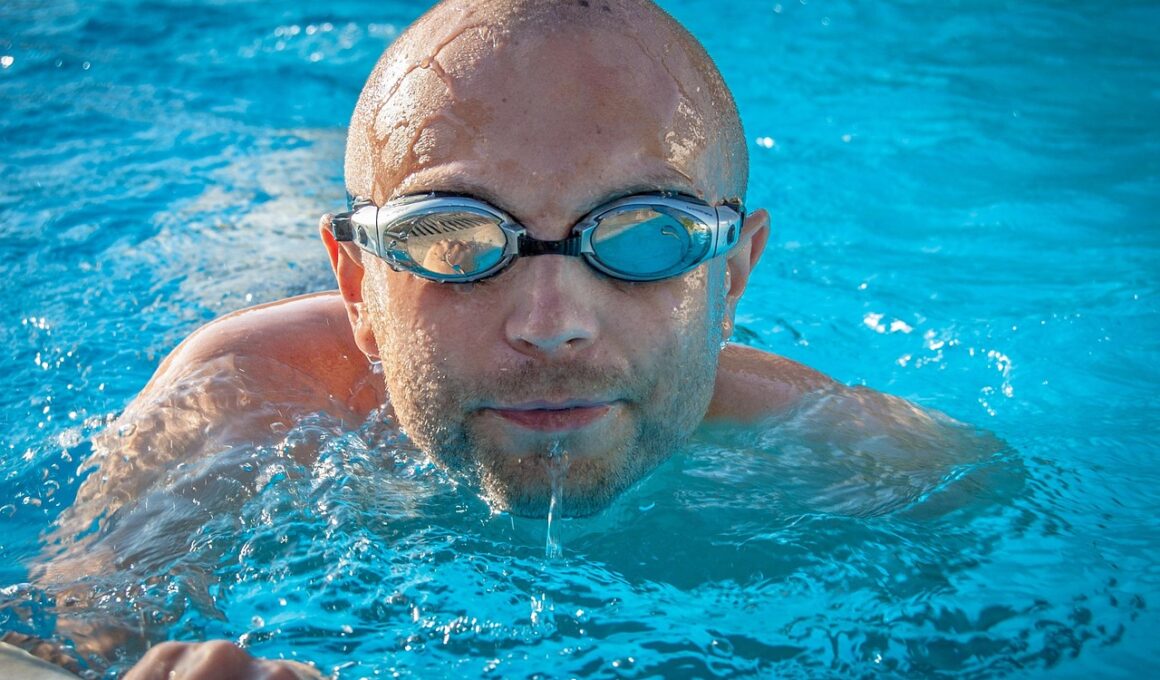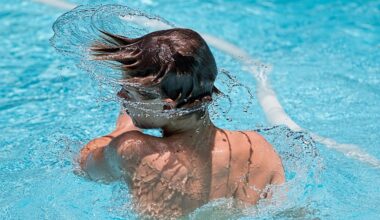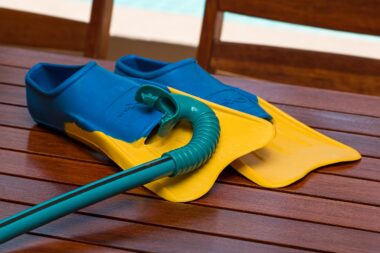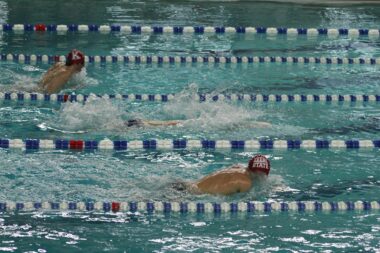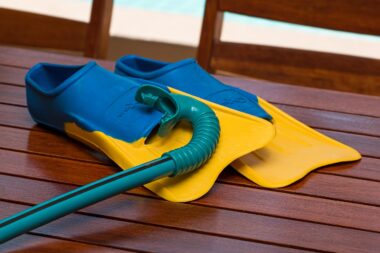The Role of Officials and Judges in Swimming Events
In swimming events, the roles of officials and judges are crucial to ensure fair competition and adherence to rules. These individuals are responsible for overseeing everything from start to finish of the race. The head official is key, coordinating all other officials, managing protests, and ultimately ensuring an unbiased environment. They maintain the integrity of the sport by closely monitoring competitors for compliance with technical regulations, such as swimming strokes, turns, and finishes. Additionally, they make instant decisions based on the rules defined by each swimming federation. Judges assist the head official by observing swimmers closely, signaling any violations or infractions. Their role includes recording times, ensuring proper conduct, and verifying that all athletes adhere to the specified starting blocks and lanes. This collaborative effort is vital, as it guarantees that competitions run smoothly and efficiently. Furthermore, officials ensure that the timing systems function accurately, providing precise results. Without dedicated officials and judges, the fairness and integrity of swimming events could be compromised, making their roles indispensable in the world of competitive swimming.
In addition to the head official and judges, various other officials play significant roles during swimming events. For instance, the starter is vital as they manage the start of each race. They utilize signals to ensure all swimmers begin simultaneously, and they must have keen attention to prevent false starts. In many competitions, the starter is also responsible for explaining the start commands, which entails both verbal instructions and hand signals. Technical officials monitor the swimmers’ compliance with swimming strokes and turns, while marshals oversee the athletic flow before and during the events. Marshals ensure that athletes are called to their lanes in an orderly manner and that they adhere to the competition schedule. There are also inspectors of turns who observe each turn made by the swimmers, ensuring that no illegal movements are performed. This cooperation among officials fosters a structured racing environment. These measures protect athletes while ensuring that everyone competes under the same conditions. The synergy among these officials ultimately supports the athletes, promoting sportsmanship and fairness, while enhancing spectator experience through flawless execution of the events.
Training and Certification of Officials
Training and certification are essential components in preparing officials and judges for their roles in swimming events. Prospective officials usually undergo rigorous training programs that cover the rules and regulations specific to swimming. These programs often include practical assessments to gauge their ability to apply the rules in real-time scenarios. Many swimming federations provide certification courses to ensure that officials are well-versed in the standards of officiating. These courses are supplemented by workshops focusing on new techniques and regulatory updates. Continuous education is encouraged, allowing officials to remain current with evolving standards in swimming. Furthermore, practical experience gained by officiating lower-level competitions can serve as invaluable training. This experience builds confidence and enhances decision-making skills. Furthermore, officials often exchange feedback in officiating seminars, refining their skills through team insights. Assessing performance based on collaborations in various events will promote growth and skill acquisition. Prospective officials also receive mentoring from experienced judges, fostering a community of knowledge-sharing and support. Therefore, ongoing education and mentorship significantly contribute to developing competent and reliable officials in swimming sports.
In preparation for events, a detailed understanding of rules is paramount for all officials. Their authoritative presence contributes significantly to the swimmers’ competitive atmosphere. It is important that each official understands the various strokes, relay rules, and individual event regulations thoroughly. They must interpret the rules consistently and fairly among all participants. This consistency helps reduce disputes related to judgments made during races. Furthermore, proper communication among officials is critical for ensuring alignment and understanding of rules and procedures during an event. For example, sharing real-time updates on any infractions allows for cohesive decisions among judges. Officials utilize technology such as official communication systems to maintain efficiency within the event. The deployment of video replay technology advances the accuracy of judging decisions, particularly in close finishes or dispute situations. This integration of technology has transformed how officiating is conducted, improving the precision in determining outcomes. Consequently, these methods bolster trust among athletes and observers in the overall officiating process in swimming events, encouraging a fair contest and supporting participants’ efforts at all levels of competition.
Challenges Faced by Officials
Despite their critical roles, officials and judges in swimming face numerous challenges throughout events. One significant challenge involves the pressure from athletes, coaches, and spectators regarding officiating decisions. Given the intense competitive nature of swimming, officials are often under scrutiny, facing complaints and protests when races do not unfold as expected. Such pressures can lead to emotional strain and may influence their ability to perform optimally. Additionally, the need for quick decision-making compounds these challenges, especially during events characterized by tight finishes. An official must effectively differentiate between a legitimate competition infraction and a compliant performance within seconds. Environmental factors can complicate matters as well, since pool conditions may affect visibility and timing accuracy. Moreover, when unexpected technical difficulties arise with timing systems, officials must quickly adapt to resolve them, further heightening stress levels. Keeping up with evolving rules adds yet another layer of complexity, requiring officials to commit time to ongoing education. Hence, these obstacles challenge officials while emphasizing the importance of resilience and adaptability in their roles to serve the integrity of swimming events properly.
Officials also play a crucial role in maintaining the safety of swimmers during competitions. They are tasked with monitoring the pool area and ensuring that all equipment, such as starting blocks and lane ropes, complies with safety requirements. Inspectors assess the pool’s condition and verify water quality before events commence, ensuring a safe environment for competition. Their vigilance is essential for avoiding accidents that could lead to injuries, ensuring that athletes can perform at their best without worry. Additionally, officials ensure that any unsafe behavior or actions among athletes are addressed promptly, fostering a culture of respect and responsibility among participants. In some instances, they also need to interact with medical teams when emergencies arise, ensuring swiftness in response to any health crises. Furthermore, officials not only oversee competitive integrity but also support the well-being of all competitors. They actively participate in discussions with coaches about safety protocols, reinforcing proper warm-up routines and post-race recovery practices. The continuous focus on athlete safety is essential in promoting long-term health within the competitive swimming community, contributing to the overall success of the sport.
The Future of Officiating in Swimming
Looking ahead, the role of officials in swimming may evolve significantly as technology advances. Enhanced timing systems and real-time monitoring tools can streamline the officiating process, paving the way for improved accuracy. Officials will likely adapt to new technologies that aid in evaluating performances. Additionally, the integration of artificial intelligence may help officiating decisions, analyzing movements more precisely. This shift may provide a clearer guideline on stroke faults and finishes, minimizing human error and enhancing objectivity in judgments. Virtual reality (VR) may also offer simulation-based training for officials to familiarize them with various race scenarios. By transitioning into a technology-driven approach, officials can prepare more effectively for their roles while minimizing biases resulting from time-sensitive pressures. Furthermore, focusing on community outreach and educational programs could help cultivate a new generation of officials equipped to handle modern challenges. For the swimming community, prioritizing collaboration ensures sustainable growth and integrity in officiating practices. Ultimately, the evolution of technology and focusing on training will create a more robust environment for swimming, ensuring fairness persists in competitions of all levels.
In conclusion, the officials and judges in swimming events are indeed paramount for the smooth functioning and fairness of competitions. Their roles encompass a wide range of responsibilities, including monitoring swimmer conduct, ensuring adherence to rules, and maintaining overall safety and fairness throughout events. Each official is educated and trained extensively to prepare them for the challenges they may face. Collaboration between various roles is essential in ensuring synergy that supports the athletes and athletes’ performances while minimizing conflicts and disputes. The emphasis on the technological advancements and ongoing training will continue shaping the officiating landscape in swimming. It fosters a culture centered around excellence and reliability. Continued evolution in techniques and practices will ensure that officiating remains relevant and effective. The unwavering commitment of officials not only elevates the integrity of the sport but also cultivates respect among all participants. By enhancing their roles and utilizing technology, the swimming community can cultivate trust in the officiating process. As we look to the future, a greater emphasis will help ensure equitable and fair swimming competitions, maintaining a vibrant and engaging environment for athletes and fans alike.
